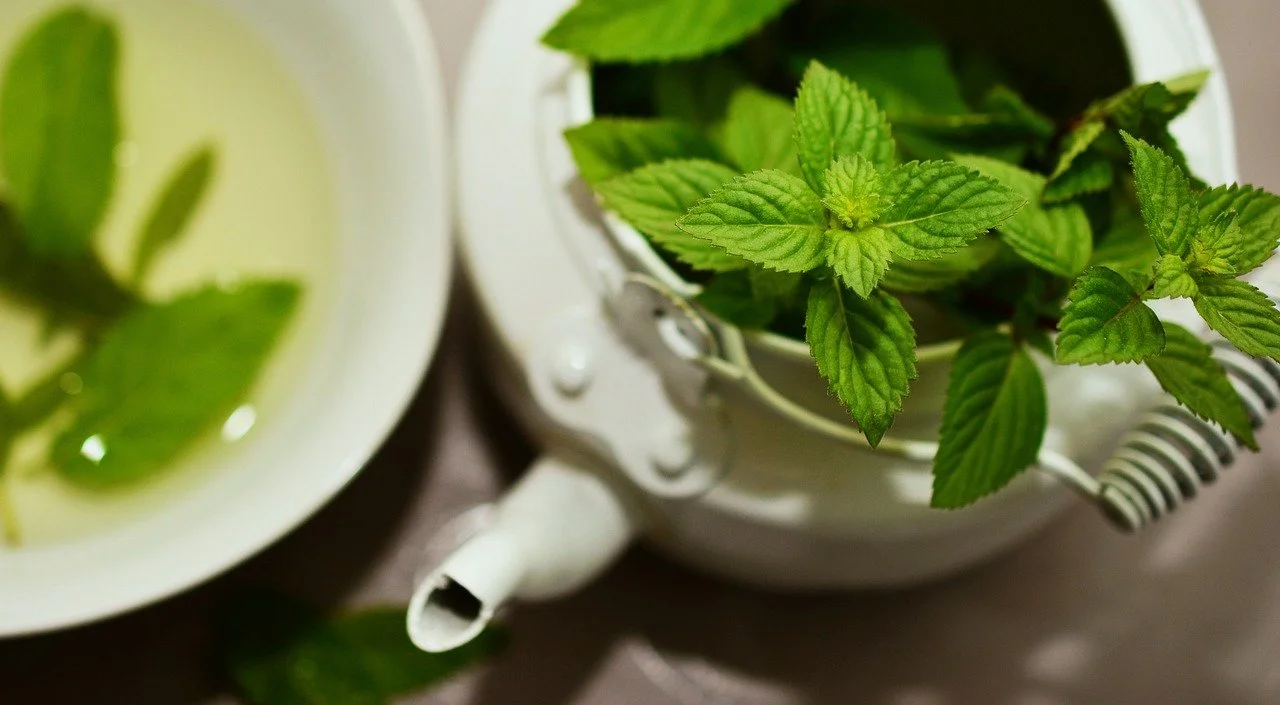Spearmint tea and PCOS: Does it actually work?
Herbal medicines have been used for decades in different cultures but have recently become more globally widespread as they are now more accessible and consumers often believe they have fewer side effects than more traditional medication given they are ‘more natural’. Spearmint tea has been placed in the spotlight for its possible anti-androgenic effects. This blog post will explore the relationship between spearmint tea and PCOS and discuss how spearmint can be added to your diet to help manage some of your PCOS symptoms.
What is spearmint?
Spearmint (Mentha Spicata) is a type of mint species that has been associated with potential health benefits. Both fresh spearmint and its essential oil are used to alleviate gastrointestinal discomfort, headaches, toothaches and muscle pain (1). Spearmint has been found to have good phenolic and flavonoid content (types of plant compounds) as well as great antioxidant activity, all of which have been linked to its beneficial effects (1).
Benefits of spearmint tea for PCOS
The role of spearmint tea in the management of PCOS is related to its suggested anti-androgenic effect (2). What this means is that spearmint may be able to reduce the level of androgens, such as testosterone, in the body. People with PCOS often have high levels of androgens resulting in a range of frustrating symptoms such as hirsutism, hair loss and acne.
Research has shown that spearmint has an anti-androgenic effect in PCOS patients, resulting in significant decreases in testosterone levels. An animal study reported a decrease in androgen levels in females with PCOS after taking spearmint extract for 30 days (2). In humans, the time needed for these anti-androgenic effects to come into play varies between research studies. A 2007 study in women with hirsutism found that consuming spearmint tea twice a day for 5 days led to a significant reduction in free testosterone (3). On the other hand, a study in Turkey displayed anti-androgenic effects after having spearmint tea twice a day for 30 days (4). So the jury is out on how long you need to consume spearmint tea to observe this reduction in androgens.
Aside from reducing the level of androgens, spearmint may be able to improve fertility by balancing levels of Follicle stimulating hormone (FSH) and Luteinizing hormone (LH). A study where women consumed 2 cups of spearmint tea for 5 days showed an increase in the levels of LH, FSH and estradiol at the end of the investigation (3).
Despite the presence of some promising evidence, research on the benefits of spearmint for women with PCOS is limited beyond its anti-androgenic effect and therefore more research is needed before making any conclusive statements.
Side effects of spearmint
Spearmint tea is generally safe to consume 2-3 times a day to improve symptoms such as irregular hair growth and other symptoms related to hyperandrogenism (high androgen levels). However, the effects of consuming very high quantities of spearmint tea for a prolonged period of time have not been well investigated in a human population. Further research is needed in order to completely understand the effects of spearmint and any potential risks or side effects.
How much spearmint tea to drink?
Thus far there isn’t a specific amount of spearmint tea that is recommended, although most studies have participants consume spearmint tea twice a day so that would be a good place to start. Spearmint tends to have a milder taste than peppermint and can be consumed hot or iced, depending on your preference. Research has not defined the best time to drink spearmint tea for PCOS however as it is naturally caffeine free, it can be enjoyed at any time of the day.
Best spearmint tea for PCOS?
When buying spearmint tea, try to look out for brands that sell 100% spearmint tea as most mint teas on the market are mixtures of different types of mint. Sometimes, loose leaf teas tend to be of better quality, however feel free to use whatever is accessible to you. The most important factor is to ensure that it is 100% spearmint to gain maximum benefit from the tea.
Finding a 100% spearmint tea in your local shops may be a little difficult, so we’ve linked some products that may be easier to access in the UK such as:
The UK Loose Leaf Tea Company - Spearmint Tea
Palanquin Spearmint Herbal Tea
Alternatives to spearmint tea
The evidence currently available suggests that brewing spearmint leaves as tea regulates hormone levels through its ability to lower androgen levels. Spearmint capsules and essential oils have been shown to have other health benefits, however, their impact on hormonal indices is not entirely clear. Some animal studies have used spearmint oils to examine these effects, but more human studies are needed to properly understand the impact of spearmint oils on hormone levels in those with PCOS (5).
Final verdict
Although we do not have a huge amount of research about spearmint tea and PCOS, there is promising evidence that it does in fact have an anti-androgenic effect and works to regulate hormone levels. If you struggle with hyperandrogenism and its side effects such as hirsutism, acne and hair loss, incorporating spearmint tea into your diet two to three times a day can be a simple and safe way to manage these symptoms. Enjoying a cup of spearmint tea before bed as part of your nighttime routine could be a great way to improve your sleep hygiene, relax and reduce your PCOS symptoms.
For more information on other ways you can manage your PCOS symptoms through dietary changes, check out this blog post.
If you would like 1-1 support in your PCOS journey, get in touch to book a free discovery call.
References


